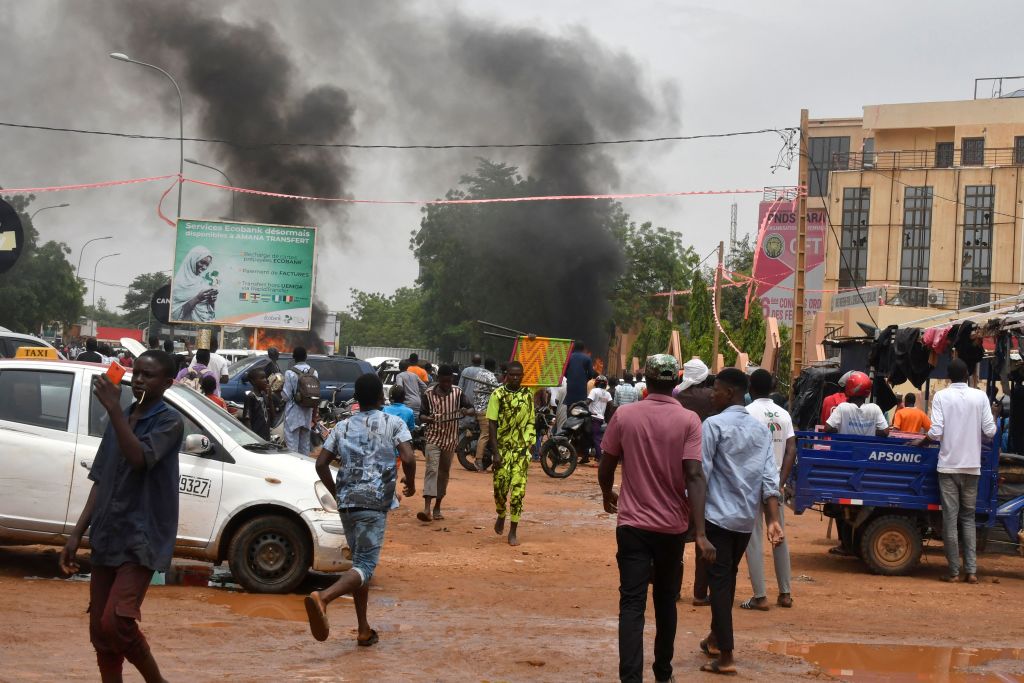ADF STAFF
The military junta that overthrew Niger’s democratically elected president claimed it was necessary to stop the extremist violence affecting that country and its Sahel neighbors. A few weeks later, 17 Nigerien soldiers died in an extremist attack near the Mali border.
Niger’s junta, like those that overthrew governments in Burkina Faso and Mali, claimed that the military can solve the extremist problem that civilian leaders could not.
Oumar Moctar, a leader of Niger’s Democratic and Republican Renewal Party, challenged that assessment.
“The military council claims that it has turned against the regime of the ruling party due to the deterioration of the security situation, as if security was not in their hands before,” Moctar wrote on X, the social media platform formerly known as Twitter.
By disrupting established civilian leadership, coups increase instability and, with it, insecurity in the country, according to experts.
“In every case the gun-toting men claimed to be saving their countries from jihadists. Yet they have proved to be far less competent than the elected governments they have overthrown,” writes The Economist.
In Burkina Faso and Mali, extremist attacks have continued despite the military coups and the junta leaders’ decision to bring in Russia’s Wagner Group mercenaries to supplement their own soldiers.
In early August, the Islamic State group claimed responsibility for an attack in northeast Mali that killed 16 soldiers. In July, extremists in Burkina Faso killed more than a dozen civilians in the eastern part of the country. In March, an attack led by Wagner mercenaries in central Mali killed hundreds of men in the community of Moura, an act that likely created more extremists, according to analysts.
By overthrowing Nigerien President Mohamed Bazoum, the junta derailed what had been one of West Africa’s most successful antiextremist campaigns.
The proof is in the numbers: Even as the extremist-related death toll has increased in the region, in Niger the numbers fell in the two years since Bazoum took power in the nation’s first peaceful democratic transfer, according to figures compiled by the Armed Conflict Location & Event Data Project.
“These guys who launched the coup are senior officers who are far removed from actual fighting,” Confidence MacHarry, a Nigeria-based geopolitical security analyst, told Voice of America (VOA). “So, on one hand, the region has lost an important ally in Bazoum in the fight against armed groups. There is not much the new military guys can do in that regard.”
Bazoum’s counterterrorism approach included creating a program to encourage extremists to defect and reintegrate into society. A trial program in the Tillaberi region brought nearly 160 former extremist fighters back into the community, with hundreds more waiting for their chance.
Experts worry the coup could upend that program and negotiations Bazoum had started with extremist groups. On August 13, extremists in the Tillaberi area killed six National Guard soldiers in the region near Burkina Faso and Mali where the core of extremists operate in Niger.
Boubacar Moussa, a Nigerien former member of an al-Qaida-linked extremist group in Mali, works with the deradicalization program. Moussa told The Associated Press that he was in Mali during the first of its two recent coups in 2020 and saw that extremists there welcomed the coup as an opportunity for them to expand operations.
Moussa said the same is likely to happen after Niger’s coup.
“It’s an occasion to convince others to join their group,” Moussa said of extremists. “Jihadis are very supportive of this coup that happened in Niger.”

